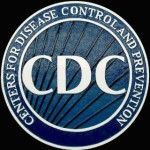GEORGIA
 The company that makes Peter Pan peanut butter agreed to plead guilty to selling contaminated peanut butter linked to a 2006 through 2007 nationwide outbreak of salmonella poisoning, officials said.
The company that makes Peter Pan peanut butter agreed to plead guilty to selling contaminated peanut butter linked to a 2006 through 2007 nationwide outbreak of salmonella poisoning, officials said.
ConAgra Grocery Products LLC, a subsidiary of ConAgra Foods Inc. will also pay $11.2 million. The plea agreement provides that ConAgra Grocery Products will pay a criminal fine of $8 million and forfeit assets of $3.2 million.
Authorities said the criminal fine is the largest ever paid in a food safety case.
ConAgra Grocery Products LLC is based in Omaha, Nebraska, with a manufacturing facility in Sylvester, Georgia.
Officials said the Centers for Disease Control and Prevention or CDC eventually identified more than 700 cases of salmonellosis linked to the outbreak with illness onset dates beginning in August 2006. The CDC estimated that thousands of additional related cases went unreported.
The CDC did not identify any deaths related to the outbreak.
Company employees attempting to locate the cause of the contamination identified several potential contributing factors, including an old peanut roaster that was not uniformly heating raw peanuts, a storm-damaged sugar silo, and a leaky roof that allowed moisture into the plant and airflow that could allow potential contaminants to move around the plant.
In public statements after the 2007 recall, authorities said company officials hypothesized that moisture entered the production process and enabled the growth of salmonella present in the raw peanuts or peanut dust.
“As parents, we can make sure that our kids look both ways before they cross the street and wear a helmet when they ride their bikes,” said Acting Associate Attorney General Stuart F. Delery. “But we have to rely on the companies that make their food to make sure it is safe. That’s why the Department of Justice is dedicated to using all the tools we have to ensure the processors and handlers of our food live up to their legal obligations to keep the public’s safety in mind.”
The company also admitted that between October 2004 and February 2007, employees charged with analyzing finished product tests at the Sylvester plant failed to detect salmonella in the peanut butter, officials stated.
In addition, the company said it was unaware that some of the employees did not know how to properly interpret the results of the tests, officials stated.
This is what happened during the 2007 outbreak salmonellosis cases, according to officials:
In February 2007, the U.S. Food and Drug Administration (FDA) and CDC announced that an ongoing outbreak of salmonellosis cases in the United States could be traced to Peter Pan and private label peanut butter produced and shipped from the company’s Sylvester peanut butter plant.
The company voluntarily terminated production at the plant on Feb. 14, 2007, and recalled all peanut butter manufactured there since January 2004.
The criminal information, filed in federal court in Georgia, alleges that on Dec. 7, 2006, the company shipped from Georgia to Texas peanut butter that was adulterated.
It also contained salmonella and had been prepared under conditions whereby it may have become contaminated with salmonella.
The company admitted that samples obtained after the recall showed that peanut butter made at the Sylvester plant on nine different dates between Aug. 4, 2006, and Jan. 29, 2007, was contaminated with salmonella.
Environmental testing conducted after the recall identified the same strain of salmonella in at least nine locations throughout the Sylvester plant.
As part of the plea agreement, officials said the company admitted that it had previously been aware of some risk of salmonella contamination in peanut butter.
Routine Testing and Significant Upgrades to Plant
On two dates in October 2004, routine testing at the Sylvester plant revealed what later was to be salmonella in samples of finished peanut butter.
While efforts to address some of these issues had occurred or were underway, the company did not fully correct these conditions until after the 2006 through 2007 outbreak, officials stated.
Following the outbreak and shutdown, officials said the company made significant upgrades to the Sylvester plant to address conditions the company identified after the 2004 incident as potential factors that could contribute to salmonella contamination.
The company also instituted new safety procedures regarding manufacturing, testing and sanitation, which it affirmed in the plea agreement it would continue to follow.

